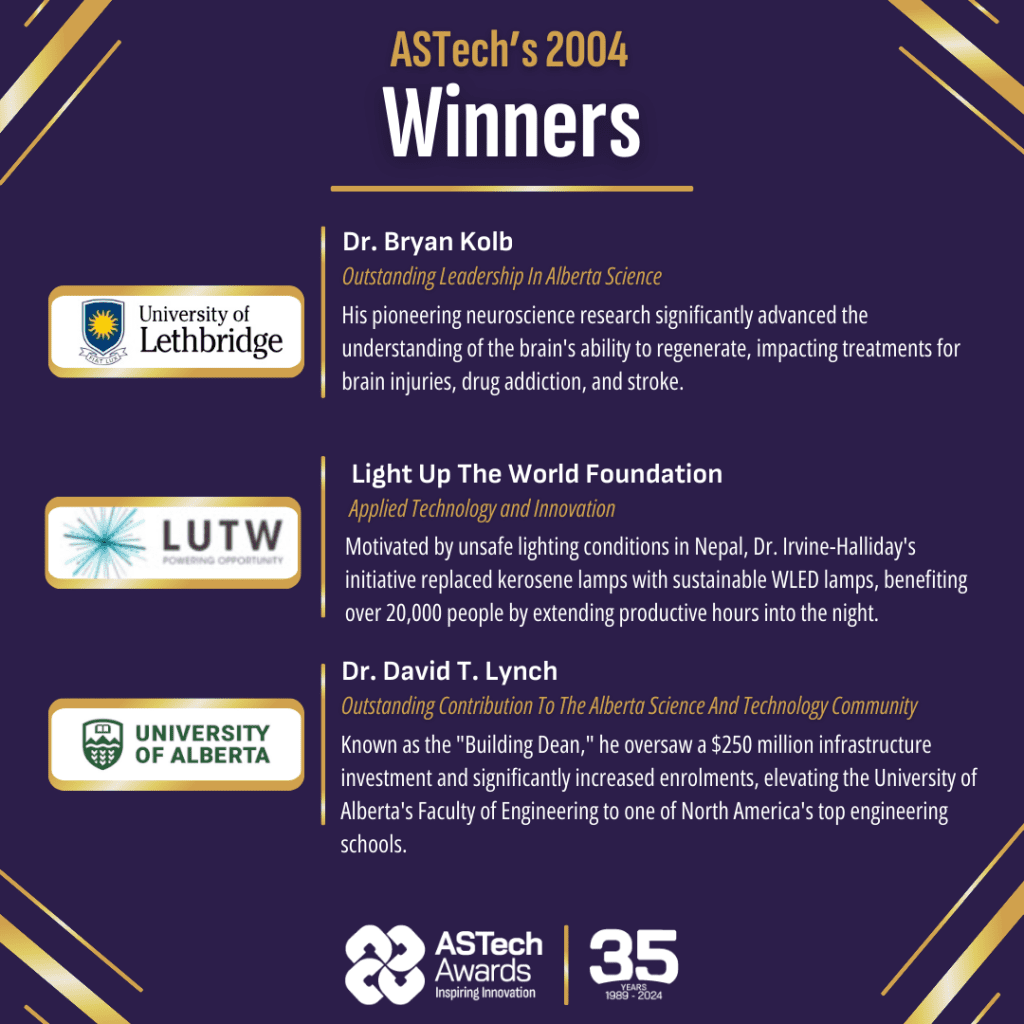Additional 2004 Winners Include:
- Virexx Medical Corp. won the Industrial Research Northern Region award for introducing the innovative Chimigen™ platform, which revolutionized vaccine development for chronic infectious diseases like hepatitis B and hepatitis C. By directing both arms of the immune system to attack infections, their patented technology offered promising solutions for treating chronic infections and addressing a global health crisis affecting millions. In 2008, Virexx Medical Corp. was acquired by Paladin Labs Inc.
- The Biotechnology Training Centre Outreach, led by Dr. Wendy Hutchins, received the ASTech Excellence in Science and Technology Public Awareness Award for their outstanding efforts in inspiring science and technology engagement throughout the community. Dr. Hutchins’ innovative outreach projects, including DNA forensics workshops and partnerships with high school teachers and students, ignited enthusiasm for biotechnology among thousands of students and re-energized science educators. Through initiatives like the Heritage Youth Researcher Summer program and Let’s Talk Science outreach, the BTC fostered practical experience and excitement for science.
- Environmental journalist Ed Struzik, author of eight books, was an acclaimed science writer for the Edmonton Journal when he received the ASTech Excellence in Science and Technology Journalism Prize: General Public for his exceptional ability to distill complex environmental issues into engaging and informative articles. Struzik employed keen observation, thorough research, and insightful interviews to shed light on pressing environmental challenges, from the arrival of cougars in Elk Island National Park to the plight of sage grouse in southern Alberta. His contributions have garnered numerous national awards and he is now a fellow of the Queen’s Institute for Energy and Environmental Policy at Queen’s University.
- Dr. Konrad Walus won the Leaders of Tomorrow award for his groundbreaking work in nanoelectronic technology as a PhD student at the University of Calgary. He developed QCADesigner, a novel computer-aided design tool for evaluating QCA technology’s potential as a replacement for integrated circuits. His innovative approach revolutionized nanoelectronic circuit technology through successful collaborations with research groups worldwide. Dr. Walus is now an Associate Professor in the Department of Electrical and Computer Engineering at UBC.
|
|

